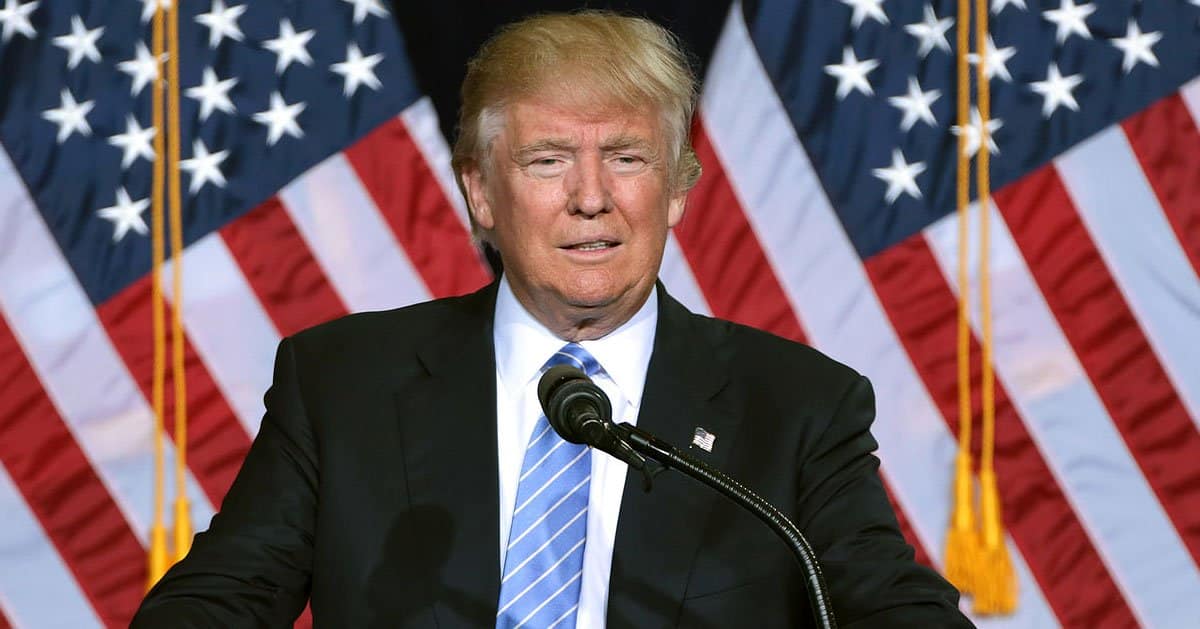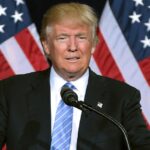







President Donald Trump is doubling down on his law-and-order agenda, targeting Memphis, Tennessee, with a bold plan to deploy the National Guard to tackle its soaring violent crime rates.
Fox News reported that Trump's announcement follows claims of success in taming crime elsewhere, but not everyone in Memphis is cheering. The move has ignited a firestorm of debate, with some hailing it as a lifeline and others slamming it as a dangerous overreach.
Trump revealed on Friday that Memphis, plagued by nearly 150 homicides in 2024 and the highest violent crime rate in the nation, is next in line for federal intervention.
On Saturday, he credited a five-month deployment of FBI and federal officers with already reducing crime in the city. He also boasted of sending federal forces to Chicago and Los Angeles, signaling a broader push to restore order in Democrat-run cities.
“The only reason crime is somewhat down [in Memphis] is because he sent the FBI and other federal officers,” Trump declared on Truth Social.
That’s a bold claim, but local businesses like the iconic Rendezvous restaurant report no crime issues, suggesting the city’s troubles may not be as universal as portrayed. Still, the White House’s own data paints a grim picture of Memphis’s murder and violence rates, lending weight to Trump’s focus.
Trump’s promise of a “no crime miracle” in Memphis echoes his claims of transforming Washington, D.C., into a “very safe” city through federal intervention. He insists that only he can deliver such results, writing, “ONLY I CAN SAVE THEM!!!” on Truth Social.
Critics, however, see this as less about salvation and more about political theater, with federal troops potentially inflaming tensions rather than cooling them. The timeline for the National Guard’s arrival in Memphis remains murky, leaving residents and officials in limbo.
Governor Bill Lee, a Republican, is all-in, praising Trump’s “unwavering support” and eagerness to collaborate with local law enforcement. His enthusiasm suggests a state-level willingness to embrace federal muscle, but it’s not a universal sentiment.
Senator Marsha Blackburn, another Tennessee Republican, is equally supportive, claiming Trump “answered [her] call” to make Memphis safe again. Her optimism hinges on the supposed success in D.C., though hard evidence of that “miracle” remains scarce. Meanwhile, Memphis Mayor Paul Young cautiously backs focused federal efforts but stops short of endorsing a full Guard deployment.
Not everyone is rolling out the welcome mat for Trump’s plan. Shelby County Mayor Lee Harris called the National Guard deployment “disappointing, anti-democratic, and violates American norms.” His sharp rebuke reflects fears that federal intervention could disrupt communities rather than stabilize them.
Harris warned that “the president’s incursion will likely cause confusion and fear in many of our communities, particularly the most vulnerable ones.”
He’s not wrong to worry—history shows heavy-handed federal tactics can erode trust, especially in marginalized neighborhoods. Yet, with Memphis’s murder rate among the nation’s worst, doing nothing isn’t exactly a winning strategy either.
“In the long term, the mark of Tennessee communities being occupied by federal forces will hurt our state’s reputation for generations,” Harris added. His concern about a lasting stigma is valid, but it sidesteps the immediate crisis of bodies piling up in Memphis streets. The question is whether federal boots on the ground will solve the problem or just kick the can down the road.
Trump’s cheerleaders, like Governor Lee, argue that federal resources are a godsend for a city drowning in violence. “I look forward to working with local officials and law enforcement to continue delivering results,” Lee said. His confidence assumes seamless cooperation, but local-federal partnerships often stumble over egos and agendas.
Memphis’s violent crime stats are undeniable—third-highest murder rate in the U.S. in 2024, per White House data. That’s not a number you shrug off, and Trump’s focus on it isn’t just posturing; it’s a response to a real crisis. But deploying the National Guard risks turning neighborhoods into militarized zones, which rarely wins hearts and minds.
Mayor Young’s support for “focused” federal initiatives suggests a middle path—targeted aid without the optics of an occupation. He’s trying to thread the needle between welcoming help and avoiding a federal takeover. It’s a smart play, but with Trump’s all-or-nothing rhetoric, nuance may get lost in the shuffle.
Memphis stands at a pivotal moment, caught between a desperate need for safety and the specter of federal overreach. Trump’s claim that his FBI deployment already curbed crime lacks clear evidence, but it’s a narrative that resonates with his base. The real test will be whether the National Guard can deliver without alienating the very communities it’s meant to protect.
Local businesses like Rendezvous, thriving despite the city’s crime stats, highlight a disconnect between perception and reality. Not every corner of Memphis is a war zone, and blanket federal intervention could disrupt areas that are functioning just fine. Precision, not a sledgehammer, might be the better approach.



